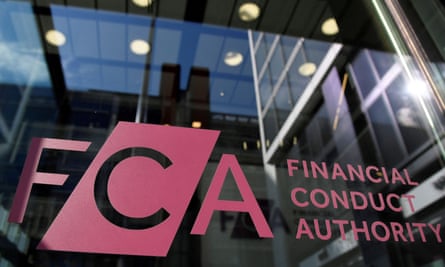
A disabled mother has told how she tried to tackle her five-figure debt by signing up to a repayment plan, but despite putting in £3,000 all her money went only on fees.
The case shines a light on what some experts have called a “wild west” sector, at a time when charities are helping an increasing number of people who are struggling with bills.
Chantelle, 37, had to stop work as a social worker in 2019 because of a disability, and her partner left his job to become her full-time carer, meaning the family’s income roughly halved to £1,600 a month.
As they were living on benefits and a private pension, the family, who live in East Anglia, were no longer able to meet their monthly payments for £23,000 worth of debt, mainly on credit cards.
The mother of one searched online for debt solutions and found a company who passed her on to an individual voluntary arrangement (IVA) provider.
 View image in fullscreenChantelle and her family were no longer able to meet their monthly payments for £23,000 worth of debt, mainly on credit cards. Photograph: Philip Toscano/PA
View image in fullscreenChantelle and her family were no longer able to meet their monthly payments for £23,000 worth of debt, mainly on credit cards. Photograph: Philip Toscano/PA
An IVA is a form of insolvency and is a formal, legally binding agreement to pay down debts over a period of time – usually five to six years – while creditors stop charging interest and chasing repayments. Individuals make regular payments to an insolvency practitioner, who shares it out between their creditors. Any amount of debt left over at the end of the IVA period is wiped.
There is a range of products available for managing debt, and it is important to pick the correct one. While an IVA will be right for some people, they can leave others struggling to cope with payments. However, some firms push people towards IVAs because they can pocket higher fees.
Some “lead generators” – firms that seek out people in debt, usually via online ads – target specific demographics, particularly women. Others have names and branding similar to legitimate debt advice charities such as StepChange and National Debtline.
Initially, Chantelle’s payments were going to be £90 a month but they went up to £100 after the value of her car – which was required because of her disability – was taken into consideration.
She says the lead generator that referred her to the IVA provider assessed her as being able to afford £90 a month, “which I thought should be doable. But the IVA provider wanted to take my car into consideration … so they said I need to pay £100 a month for six years rather than five.
My utilities jumped from £80 a month to £170, so I said they needed to reduce my IVA, and they said they couldn’t
“I agreed to it, and it ran fine for the first year, but then my council tax and rent and other bills went up, so I contacted them and let them know as part of the review but they didn’t change the payment, so it was a struggle to afford it.
“When it got to the third year, my utilities jumped from £80 a month to £170 a month, so I said they needed to reduce my IVA, and they said they couldn’t. Eventually they said they could accept [a reduced payment of] £65 but that was more than I could afford, and that’s when I contacted Citizens Advice. At the end of that period, I had basically just paid their fees.”
Chantelle adds: “We don’t have a very luxurious lifestyle but I do pay for my daughter to do a couple of classes – she does swimming and dance. I didn’t want to have to stop them because I feel bad that she’s held back by having a disabled parent. I didn’t want to change her routine, and that was the only area that we would have been able to cut back on. Luckily, it didn’t come to that.”
After three years she was able to cancel the IVA with help from Citizens Advice – but, despite paying £3,000 in instalments, the family’s debts remained untouched, as her payments had gone towards fees. They now have a debt relief order (DRO), which freezes debt for a year then writes it off completely if their finances haven’t changed.
StepChange’s head of policy, Peter Tutton, told Guardian Money that the IVA market is a “wild west”, and that more needs to be done to protect consumers from unsuitable debt solutions.
The City watchdog, the Financial Conduct Authority (FCA), recently announced new rules that will apply to debt packager firms (a type of lead generator) in an effort to reduce the financial incentive for companies to recommend an IVA when a different debt solution would be better.
The FCA previously found that some firms encouraged people to sign up for IVAs in order to earn the higher referral fees. Last month it revealed that one individual, who was homeless, was recommended an IVA costing them £6,000 when they could have been debt-free in one year via a DRO for £90.
However, many firms in this space are not FCA-regulated and so are not bound by the new rules.
 View image in fullscreenThe FCA’s new rules aim to reduce the financial incentive for firms to recommend an IVA when a different debt solution would be better. Photograph: Toby Melville/Reuters
View image in fullscreenThe FCA’s new rules aim to reduce the financial incentive for firms to recommend an IVA when a different debt solution would be better. Photograph: Toby Melville/Reuters
IVAs cost about £5,000 on average, which is paid by the consumer on top of repaying their debts and goes towards setup and management fees.
Some insolvency practitioners will ask for the fee upfront, while others will take it from the monthly instalments paid by the client.
Tutton says: “If IVAs go wrong, they go very wrong. You don’t get the debt relief you signed up for, and … you’ll find that if you’ve paid £2,000, very little of that will have come off your debts, and you’re back to square one or worse off.
“They’re unique among debt solutions that are being marketed at financially and otherwise vulnerable people. They’ve got this high-risk factor of going wrong, so given that you’d expect a very high standard of oversight and scrutiny, actually the oversight and scrutiny is lower than it is for the rest of debt advice, and that needs to be addressed really quickly.”

